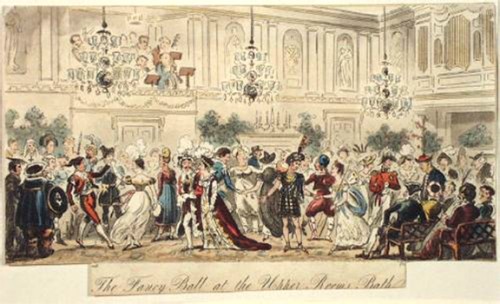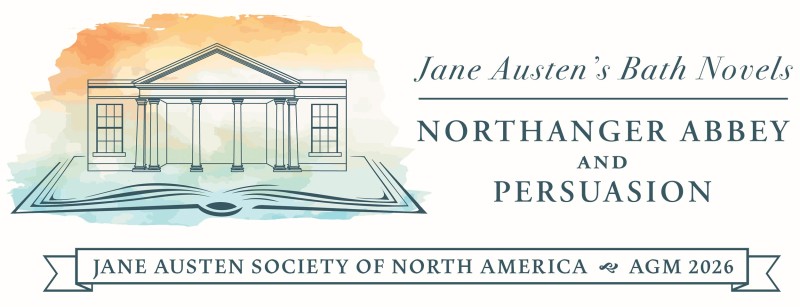Theme
JASNA invites you to discover the history of Bath and to take a fresh look at the two novels for which Jane Austen chose that city as a principal setting.
Northanger Abbey, her first sold work, reveals a young author of prodigious talent and unusual confidence. Times past and opportunities missed, though “not gone for ever,” imbue Persuasion, Austen’s last completed manuscript. Each of these novels is rich on its own, and together they offer almost boundless scope for fascinating comparisons. They are the novels in which Austen most precisely examines innocence and experience, and their pairing also reveals historical and economic changes from the 18th to the early 19th century, including the decline of the city of Bath itself.
Public entertainments and private pastimes feature in both novels, as do falsehood, intrigues, and self-deception. Travel is also central: it can be an exile or dislocation, an escape, or an opportunity for discovery and reinvention. Health and ill-health in all their manifestations—the “bloom” of youth, gout and other maladies of age, treatment regimens, wartime and domestic injuries, and so on—add to the backdrop and define certain characters. The two novels present a range of masculine types among their heroes, villains, and minor characters. Both Catherine Morland and Anne Elliot find love among Bath’s honey-colored stone buildings after fending off unworthy suitors, and the nature and expression of love in their respective partnerships invites comparisons.
These are just a few of the potential topics that may be addressed during the conference. We encourage exploration of "Jane Austen’s Bath Novels: Northanger Abbey and Persuasion" from a wide range of perspectives, and we welcome diverse voices.

The Fancy Ball at the Upper Rooms, Bath, by Thomas Rowlandson

